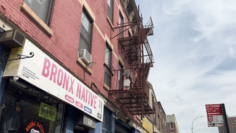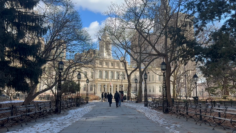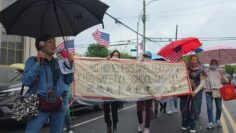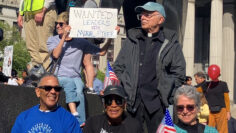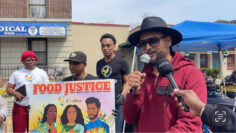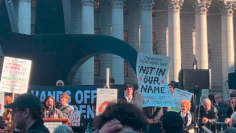How People in New York City Are Preparing For The Summer Heat
The National Weather Service predicts May, June, and July will be hotter than usual.
“The last few summers, I noticed it was extremely hot,” said Sherri Culpepper, a longtime Harlemite who lives on 132nd St in Central Harlem. She is also an urban farmer and has had her own garden in her backyard where she grows her own food. Culpepper says she saw firsthand how the record heat last year affected her plants.
“I think last year was the first time that I can remember that I had to water them twice a day. And they were completely dry,” said Culpepper.
Last summer NYC saw record high temperatures. This year higher temperatures are expected to be accompanied by more rainfall. But Culpepper has says her diet is one of the ways she beats the heat.
“When the weather gets warmer, I tend to eat primarily raw. I don’t eat cooked foods. I love fruit. I almost become a fruit-atarian,” said Culpepper.
Dr. Venis Wilder is a family doctor and regional medical director who agrees that eating healthier and more organic is a great way to combat heat.
“You’re giving your body the foods that it needs…that help the body to work well in times of stress and extreme heat is a stress,” said Wilder.
The Department of Health released the Heat Mortality Report which found that Black New Yorkers are twice as likely to die from heat-related issues and lack of access to home air conditioning.
“If you’re just thinking about city planning and infrastructure, there happens to be less parks and less green spaces that provide shade and cooling capabilities. So I do think that it is definitely a risk for communities of color,” said Wilder. “This is not a natural occurrence that just happens. It’s based on how, where people are placed.”
The most vulnerable areas of the city are Central Brooklyn, Upper Manhattan, Southeast Queens and the Bronx.
We Act for environmental justice is one organization working in some of those communities to spread awareness and fight for legislation to address climate issues.
“We do workshops with our climate ready uptown plan to go over the impacts extreme heat can have on the body, how to cool yourself, and how to prepare your home, or the different resources that exist in the city for people to access when it is really hot outside,” said Annie Carforo, Climate Justice Campaign Manager at We Act.
For other resources and ways to prepare for the heat, visit NYC.gov.
Jason is a reporter from Riverdale, New York and covers public health for City Newsroom. He has reported on a various issues including politics, racial justice and currently public health. Jason is a graduate of Howard University where he wrote for the The Hilltop Newspaper. Jason has also interned for New York Amsterdam News.






